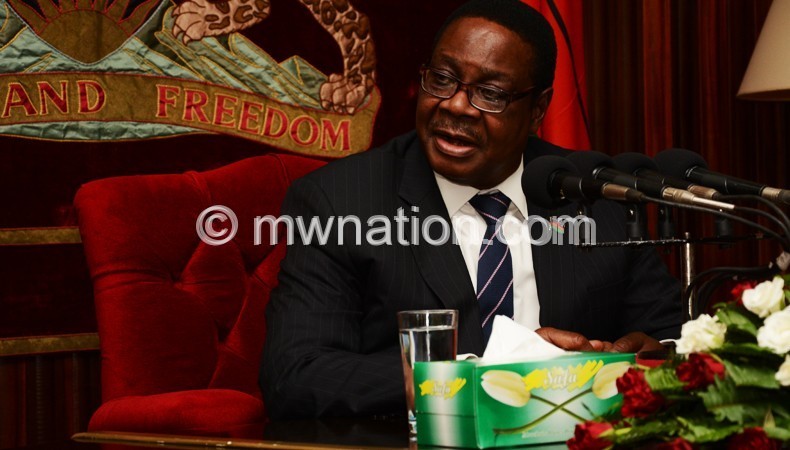APM 2003 paper called for radical ACB changes
A 2003 academic paper by then constitutional law scholar Peter Mutharika indicates that the President once radically advocated law reforms, including those to do with independence of Anti-Corruption Bureau (ACB).
Ironically, Mutharika’s administration, which adopted devolution of some presidential powers, including changes to the current presidential appointment of ACB director in the ruling DPP’s 2014 campaign manifesto, has subsequently resisted any attempts to change the law once in power.

Lawmakers from Mutharika’s DPP shot down, in Parliament, an opposition sponsored motion to change the laws governing ACB through a draft similar to Mutharika’s view.
Mutharika has also publicly fought the attempts to change the law and remarkably told the Public Affairs Committee (PAC), a quasi-religious civil society body working in the governance sector during a meeting that since taking power he received new advice against changing the laws.
But Mutharika, writing as early as 2003 during the presidency of Bakili Muluzi in a paper titled: ‘Accountability For Political Abuses in Pre-Democratic Malawi: The Primary Truth’, had scholarly conviction ACB needed radical changes.
Wrote Mutharika: “Another source of weakness for the bureau is its lack of political autonomy; the bureau does not have independent prosecutorial powers, and the President has the power to dismiss the bureau director at any time. Recently, there have been allegations of massive corruption at the highest levels of the government and several Cabinet ministers have been dismissed. Corruption has, therefore, become a political rather than a law enforcement problem.
“In such a context, it is questionable whether the Anti-Corruption Bureau can succeed in its mission.”
In an interview, Catholic Commission for Justice and Peace (CCJP) national secretary Martin Chiphwanya, said Mutharika’s change of heart on the subject was part of an endemic problem where leaders fail to live up to their pledges outside power.
“Oftentimes authorities in political leadership offer good solutions when they are not in power. When they are given mandate to run affairs of the nation, they shift their positions on issues. This is a clear indication that our politicians do not stand on principles but rather they thrive on bad policies to protect their interests. The President needs to translate his ideas into action by doing what is good for the country as highlighted in his paper. Mere words with little or no action will only worsen the operations of ACB,” said Chiphwanya.
Noting that Mutharika’s position as an academic was sound and grounded, Chiphwanya added “academic excellence ought to be translated into realities of our situation.”
Riding on the wave of public anger over Cashgate, in 2013 an emboldened ACB held public meetings with the Legal Affairs Committee of Parliament to lobby for the new law that will, among others, give it political autonomy and other sweeping powers close to Mutharika’s 2003 view.
Lack of political will subsequently derailed any tabling of the Bill while corruption continues worsening in the country.
According to minutes of a presentation to the Legal Affairs Committee of Parliament made by ACB’s top management during a lobbying meeting held in Lilongwe in 2013, the amendments the bureau has been pushing for are identical to what is contained in the defeated motion championed by the committee’s chairperson, Peter Chakwantha and Mutharika’s paper. n





